2001 Maccabiah Games
The 16th Maccabiah Games (Hebrew: המכביה ה16 ישראל תשס"א), the Opening Ceremony was held in Jerusalem at Teddy Stadium, while the re-building process of the collapsed bridge and investigations into the collapse continued. The 16th Maccabiah attracted more than 5,000 athletes from 46 countries.
 | |
| Host city | Jerusalem, Israel |
|---|---|
| Nations | 49 |
| Debuting countries | |
| Athletes | 3,300 |
| Events | 38 |
| Opening | July 16, 2001 |
| Closing | July 23, 2001 |
| Opened by | Keren Leibovitch |
| Main venue | Teddy Stadium |
It is considered a 'smaller games' for three reasons: attendance was significantly lower, particularly from the Australians (who sent only about 170 athletes, compared with around 400 in 1997); it was run at the height of the Second Intifada (and straight after the infamous Dolphinarium bombing—the largest of the Intifada—that killed 21 Israelis, mostly high school students); and not all wounds had been healed after the collapse of the bridge.
History
The Maccabiah Games were first held in 1932.[1] In 1961, they were declared a "Regional Sports Event" by, and under the auspices and supervision of, the International Olympic Committee.[2][3][4] Among other Olympic and world champions, swimmer Mark Spitz won 10 Maccabiah gold medals before earning his first of nine Olympic gold medals.[5]
Opening ceremony
Over 25,000 people were at the stadium for the opening ceremony. Keren Leibovitch, an Israeli paralympic swimmer who had won three gold medals at the 2000 Paralympics, was given the honor of lighting the torch at the Games at Teddy Stadium in Jerusalem.[6]
Junior futsal and girls' soccer were new sports.
At the opening of the Games on July 16, 2001, Prime Minister Ariel Sharon declared:
"Approximately 2,100 years ago, the Maccabees lit the torch in Modi'in and carried it to the gates of Jerusalem, in the Jewish people's struggle for freedom in its homeland. The same fire of freedom and faith, which was not extinguished during 2,000 years, is, today, passed on to you.... You represent the spirit of the Maccabees who fought for Jerusalem and for Jewish rights and independence 2,167 years ago."[7]
Notable competitors
Gold medalist Lenny Krayzelburg of the United States set a new record in the 100-meter backstroke. He also won a gold medal in the 4 X 100M medley relay.[8] Krayzekburg was chosen by the US team to carry their flag at the opening ceremony.[9] Noah Pink competed in swimming for Canada.[10]
Russian Olympic champion fencers Sergey Sharikov and Maria Mazina won gold medals in men's sabre and women's foil.[8] Vadim Gutzeit of Ukraine, who nine years earlier won an Olympic gold medal in team sabre, won a silver medal in sabre, as he lost to Sharikov. Jonathan Tiomkin of the US, who later was a Pan American Games gold medalist, won silver medals in team foil and team épée. Lydia Hatuel-Czuckermann won the bronze medal for Israel in the women's individual foil competition.[11]
Doug Gottlieb won a gold medal in basketball with Team USA, and was named basketball MVP.[12][13] Israeli pole vaulter Alex Averbuch won a gold medal.[14][15] Russian grandmaster Evgeny Alekseev won a gold medal in chess.[16]
Nicolás Valansi competed in soccer for Argentina, which won a gold medal, as he was named tournament MVP.[17] Joe Jacobson represented Great Britain in soccer, at the age of 14.[18] Jonathan Kestenbaum, Baron Kestenbaum of Foxcote competed for Great Britain in soccer in the masters.[19]
Chilean tennis player Nicolás Massú competed, but did not earn a medal.[20] Canadian volleyball player and future Olympian Josh Binstock competed for Canada.[10]
Participating communities
The number in parentheses indicates the number of participants that community contributed.
 Argentina
Argentina.svg.png.webp) Australia (170)
Australia (170) Austria
Austria Azerbaijan
Azerbaijan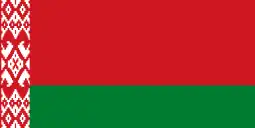 Belarus
Belarus.svg.png.webp) Belgium
Belgium Brazil (115)
Brazil (115) Bulgaria
Bulgaria.svg.png.webp) Canada (300)
Canada (300) Chile
Chile China
China Colombia
Colombia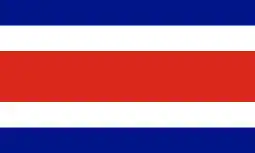 Costa Rica
Costa Rica Croatia
Croatia Denmark
Denmark Finland
Finland France (138)
France (138).svg.png.webp) Georgia
Georgia Germany (54)
Germany (54)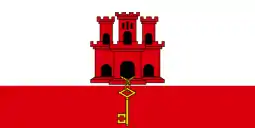 Gibraltar
Gibraltar Greece
Greece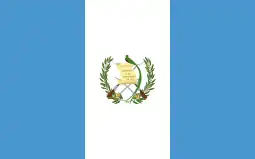 Guatemala
Guatemala Hungary
Hungary Israel (1,300)
Israel (1,300) Italy
Italy Latvia
Latvia Lithuania
Lithuania Mexico
Mexico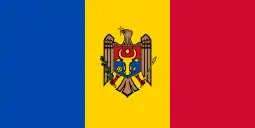 Moldova
Moldova Netherlands
Netherlands New Zealand
New Zealand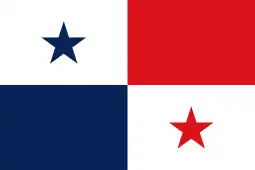 Panama
Panama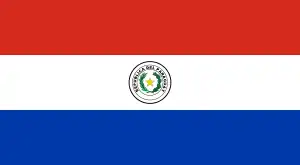 Paraguay
Paraguay Peru
Peru Poland
Poland Russia
Russia Slovakia
Slovakia Spain
Spain South Africa
South Africa Sweden
Sweden.svg.png.webp) Switzerland
Switzerland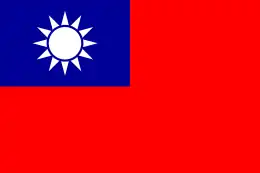 Taiwan
Taiwan Turkey
Turkey Ukraine
Ukraine United Kingdom (160)
United Kingdom (160) United States (387)
United States (387)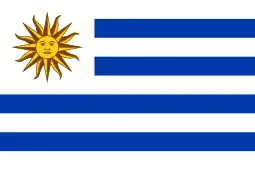 Uruguay
Uruguay.svg.png.webp) Venezuela
Venezuela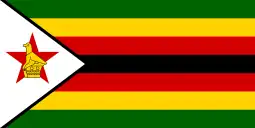 Zimbabwe
Zimbabwe
Medal count
* Host nation (Israel)
| Rank | Nation | Gold | Silver | Bronze | Total |
|---|---|---|---|---|---|
| 1 | 223 | 192 | 159 | 574 | |
| 2 | 34 | 54 | 61 | 149 | |
| 3 | 22 | 15 | 18 | 55 | |
| 4 | 5 | 8 | 14 | 27 | |
| 5 | 5 | 5 | 3 | 13 | |
| 6 | 5 | 3 | 8 | 16 | |
| 7 | 4 | 6 | 1 | 11 | |
| 8 | 4 | 1 | 8 | 13 | |
| 9 | 3 | 3 | 6 | 12 | |
| 10 | 2 | 2 | 2 | 6 | |
| 11 | 2 | 0 | 4 | 6 | |
| 12 | 2 | 0 | 1 | 3 | |
| 13 | 1 | 11 | 11 | 23 | |
| 14 | 1 | 4 | 17 | 22 | |
| 15 | 1 | 0 | 0 | 1 | |
| 1 | 0 | 0 | 1 | ||
| 17 | 0 | 3 | 1 | 4 | |
| 18 | 0 | 2 | 0 | 2 | |
| 19 | 0 | 1 | 6 | 7 | |
| 20 | 0 | 1 | 0 | 1 | |
| 0 | 1 | 0 | 1 | ||
| 22 | 0 | 0 | 2 | 2 | |
| 23 | 0 | 0 | 1 | 1 | |
| 0 | 0 | 1 | 1 | ||
| 0 | 0 | 1 | 1 | ||
| Totals (25 entries) | 315 | 312 | 325 | 952 | |
References
- "The 20th Maccabiah Games: A brief History (Part 1)," The Canadian Jewish News.
- Helen Jefferson Lenskyj (2012). Gender Politics and the Olympic Industry. Palgrave Macmillan. ISBN 9781137291158.
- Mitchell G. Bard and Moshe Schwartz (2005). 1001 Facts Everyone Should Know about Israel p. 84.
- "History of the Maccabiah Games". Maccabi Australia. Archived from the original on 2016-10-20.
- "At Maccabiah Games, 300 Jewish American athletes become bar and bat mitzvah". The Forward. July 14, 2022.
- "The Maccabiah Games history and information". Jewishsports.net. Retrieved July 10, 2011.
- Eric H. Cline (September 2004). "The Use and Abuse of Ancient Conflicts in the Modern Battle for Jerusalem". Bible Interp.
- "The Maccabiah Games history and information". International Jewish Sports Hall of Fame. Retrieved 30 April 2014.
- Schiff, Brian (August 2, 2001). "Phoenix of the Games". Jewish Journal. Retrieved April 30, 2014.
- "2001 Team Canada Delegation"
- "Hatoel-Zuckerman, Lydia". Jews in Sports. Retrieved 9 September 2015.
- LEVINE, LES. "Basketball has been in the air for Gottlieb family". Cleveland Jewish News.
- "2001 US Maccabiah Basketball Team". August 2001. Retrieved 2007-03-10.
- "Averbukh wins Maccabiah Games". PoleVaultPower.
- "Alex Averbukh". www.jewishvirtuallibrary.org.
- "JUDAISM AND CHESS". The Chesspedia. Retrieved 2017-10-31.
- "16th Maccabiah Games: Football" (PDF). Maccabi World Union. 2001. Archived from the original (PDF) on 23 February 2012. Retrieved 13 September 2009.
- "Who said there are no Jewish pro footballers?" – via PressReader.
- "Lord Kestenbaum named as GB president for EMG"
- "Nicolas Massu's GS Performance Timeline & Stats". www.db4tennis.com.
